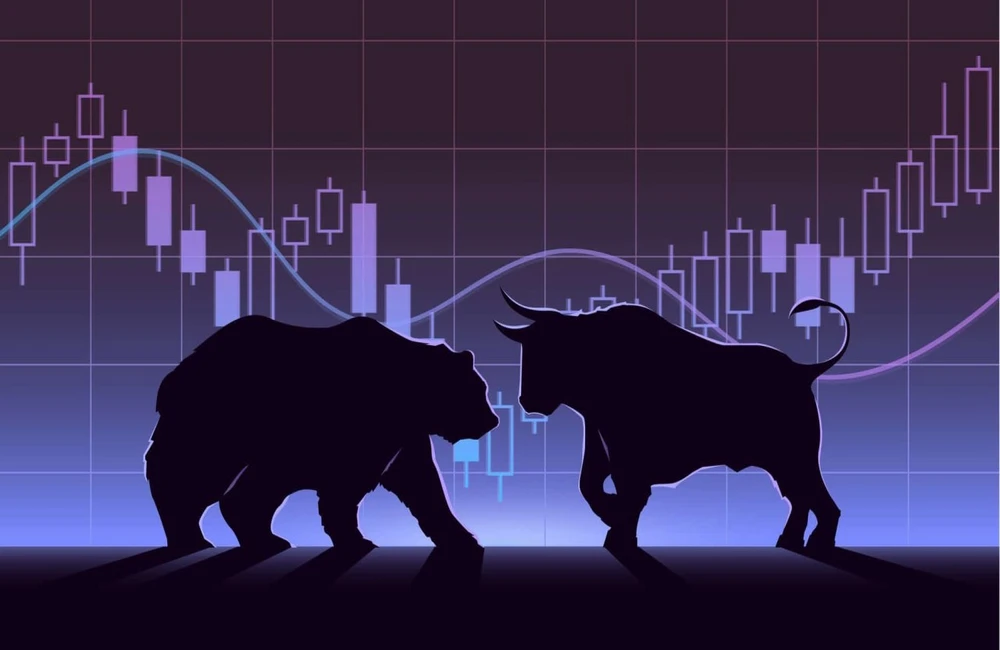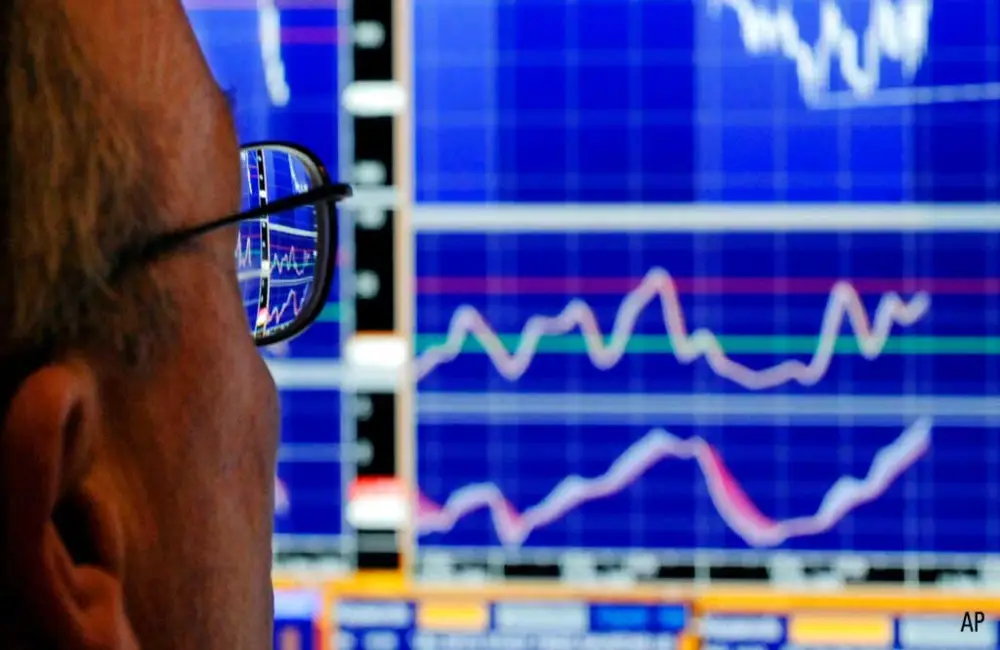ASX futures are down 0.7%, which indicates that the benchmark index is poised to extend its 0.3% decline on Wednesday and post a third straight decrease.
Wall Street dropped on light trade with investors remaining on the sidelines throughout the shortened holiday week.
The S&P 500 closed 1.2% down. The Dow Jones Industrial Average fell 1.1 percent. The Nasdaq Composite fell 1.4 percent. All three averages had been trading in the black earlier in the session.
Commodities
In commodities, Brent crude fell 1.58% to $US83.00 and gold fell 0.51% to US$1,804.42.
In bond markets, the Australian 2 Year was 3.39% and the 10 Year was 4.03%. Elsewhere, US 2 Year Treasuries yields retrenched to 4.35% while US 10 Year Treasuries yields rallied to 3.88%.
The Australian dollar touched 67.34 US cents compared to the previous close of 67.33.
Asia
Chinese stocks ended down as investors looked past the headline on China’s border reopening. The Shanghai Composite Index closed down 0.3% at 3087.40. Reopening optimism in the longer run is being eclipsed by the short-term economic pain associated with widespread Covid outbreaks that are disrupting business activity. Automobile manufacturers and their suppliers were among the biggest decliners after some electric-vehicle makers reduced their delivery guidance in light of Covid-induced production suspensions. BYD fell 2.9 percent, while CATL, which supplies Tesla, dropped 2.4 percent. Financials-fell in, outperformed the market and outpaced the market. Ping An Insurance gained 1.5% and China Merchant Bank rose 1.8%.
Hong Kong stocks ended higher but remained behind gains in China’s onshore market, as investors cheered a move by China to cancel quarantine measures for inbound travelers. Most of Hong Kong’s existing Covid-19 restrictions were also canceled on Wednesday afternoon, including arrival testing and vaccine passes. The benchmark Hang Seng index gained 1.6% to close at 19898.91. Though the index pulled back from more pronounced advances in late morning trade, it still finished at its higher close in more than two weeks and climbed to trade close to a four-month high. The rise was broad based and solar equipment maker Xinyi Solar was leading the charge, up 8.3%. Biotech company Wuxi Biologics rose 6.9%, power producer ENN Energy climbed 6.5% and Haidilao rose 4.8%.
Japanese shares finished in negative territory, weighed by declines in electronics and real-estate issues, amid uncertainty over the outlook for the global economy as central banks tighten policy. Lasertec declined 3.0 percent and Sumitomo Realty & Development slipped 1.6 percent. The Nikkei Stock Average lost 0.4% to 26340.50. The yield on the 20-year Japanese government bond was up 3 basis points to 1.270 percent, and that on the 10-year JGB was unchanged at 0.450 percent. “Investors are looking at economic data and what that means for monetary policy.
Europe
Updated Dec. 31, 2019, 12:25 p.m. ET European stocks ended down over all, in choppy trading as the new year approached.
The FTSE 100 finished 0.3% higher in thinned holiday action. "It's been a holiday-tinged day in the markets today, with the combination of the light news flow and subsequent lower levels of market liquidity resulting in choppy but essentially inconsequential moves," says Oanda’s senior market analyst, U.K. & EMEA, Craig Erlam. It really does feel like we’re sort of just cruising into 2023 at this point and when it lands it seems like it will pick up quickly again.”
The pan-continental Stoxx Europe 600 fell 0.1 percent, the German DAX dropped 0.5 percent, and the CAC 40 was down 0.6 percent.
North America
U.S. stock indexes dropped Wednesday as investors weighed the global-growth impact of China’s easing of Covid-19 measures.
The S&P 500 ended down 46.03 points, or 1.2 percent, at 3,783.22. The Dow Jones Industrial Average fell 365.85 points, or 1.1%, to 32,875.71. The Nasdaq Composite edged 139.94 points lower, or 1.4%, to 10213.29. All three averages had been trading in positive territory earlier in the session.
The American stock market is in the midst of what is typically an end-of-year window dressing, when stocks tend to hold up. At the end of each year, and through the first two trading days of the next, stocks tend to do what investment pros call a Santa Claus Rally. The S&P 500 has been positive in this interval 78% of the time since 1950, with an average gain of 1.3%, according to Dow Jones Market Data.
This year, investors are navigating China’s reopening and higher global interest rates. And starting Jan. 8, China will do away with all of its quarantine requirements for Covid-19, for inbound visitors, whether foreign or Chinese. That’s going to ripple around the world economy and global markets, at a time when growth is slowing and inflation seems stubborn.
“I think the way [China has opened up] is very surprising...I think that’s why markets are going backward and forward,” said Altaf Kassam, head of investment strategy and research for Europe, the Middle East and Africa at State Street Global Advisors.
They continue to grapple with the implications of tightening monetary policy from around the world, and so the sentiment is a little heavy, too,” he added. “And now the effects of that are being felt,” Mr. Kassam said.
Trading volume is expected to be low this week as investors are out of their offices for around the year-end holidays. That can create exaggerated moves in markets, as investors grapple with less liquidity.
“The closer you get to year end, the less volume there is and the more volatility you’ll see,” said Adam Phillips, managing director of portfolio strategy at EP Wealth Advisors. “A lot of people wanted to close out the year on a positive note, and what we have here today is sort of the market kicking a man while he’s down.”
Tesla shares added $3.61, or 3.3%, to $112.71, regaining a bit of the ground they lost Tuesday in a selloff. The electric-vehicle maker's shares are off 68% in 2022, pacing its worst year ever.
Shares of Southwest Airlines fell $1.75, or 5.2 percent, to $32.19 as fallout from its holiday storm meltdown continued. According to FlightAware, on Tuesday Southwest had canceled 65 percent of its scheduled departures.
























